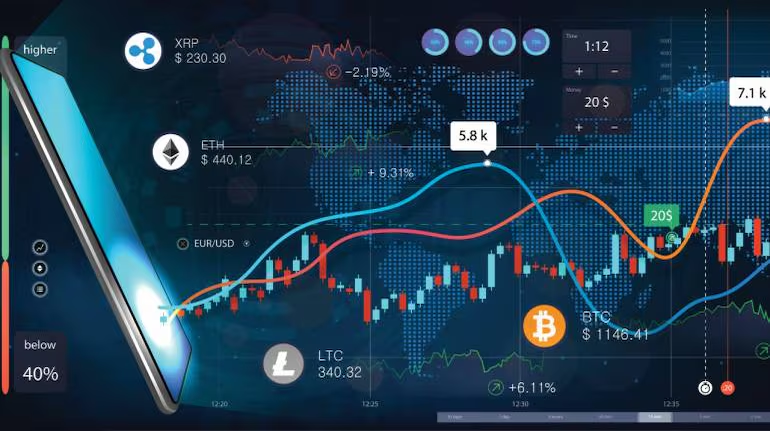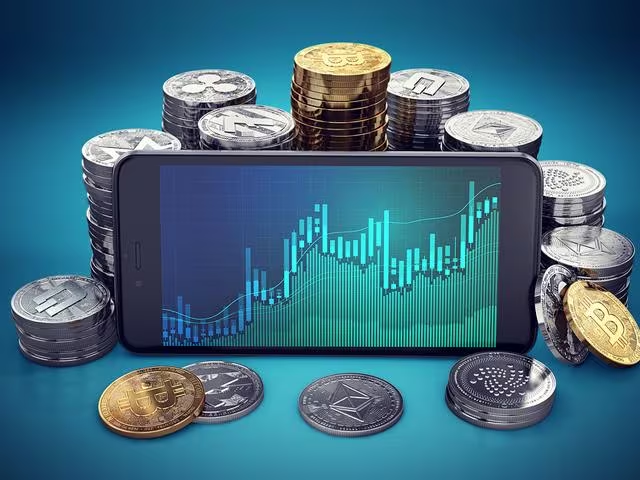AUTHOR : BILLIE EILLISH
DATE : 27/08/2024
Introduction
In recent years, the rapid evolution of blockchain technology[1] and cryptocurrencies has significantly impacted various sectors, including financial transactions. In India, a country known for its massive mobile user base and burgeoning digital economy[2], crypto payment solutions for mobile apps are becoming increasingly relevant. This trend is driven by a combination of factors, including the need for secure, efficient, and cost-effective payment methods[3], and the growing acceptance of cryptocurrencies[4] as legitimate financial instruments.
1. The Crypto Payment Solutions For Mobile Apps In India Ecosystem
India’s mobile app ecosystem is one of the largest and fastest-growing in the world. With over 600 million smartphone users, the country presents a vast market for app developers and businesses. Mobile apps in India cover a wide range of services, including e-commerce[5], entertainment, finance, and more. As digital payment solutions become more integral to everyday transactions, integrating crypto payment solutions into mobile apps offers significant advantages.
2. The Rise of Crypto Payment Solutions For Mobile Apps In India
Cryptocurrencies have gained substantial traction in India over the past few years. The Indian government’s stance on digital currencies has evolved, with regulatory frameworks gradually taking shape. The Reserve Bank of India (RBI) has shown increased openness towards blockchain technology, though there are still regulatory uncertainties surrounding cryptocurrencies. Despite this, the popularity of digital assets like Bitcoin, Ethereum, and other altcoins is on the rise, driven by both speculative investment and genuine use cases.
3. Advantages of Crypto Payment Solutions For Mobile Apps In India

a. Security and Transparency in Crypto Payment Solutions For Mobile Apps In India
One of the primary advantages of integrating crypto payments into mobile apps is enhanced security. Blockchain technology, which underpins cryptocurrencies, provides a decentralized ledger that records all transactions transparently. This reduces the risk of fraud and ensures that transactions are immutable and verifiable. For mobile app users, this translates to increased confidence in the security of their financial transactions.
b. Lower Transaction Fees
Traditional payment methods often involve intermediaries, such as banks or payment processors, which can result in higher transaction fees. Cryptocurrencies, on the other hand, operate on a peer-to-peer network, eliminating the need for intermediaries and significantly reducing transaction costs. For mobile app developers and businesses, this can mean substantial savings, especially for international transactions.
c. Faster Transactions
Cryptocurrency transactions are typically processed much faster than traditional banking transactions, which can take several days. In contrast, crypto transactions can be completed within minutes, regardless of geographical location. This speed is particularly beneficial for mobile apps that require real-time payment processing, such as e-commerce or gaming applications.
d. Financial Inclusion
India has a large population that remains underserved by traditional banking services, particularly in rural areas. Cryptocurrencies offer an opportunity to bridge this gap by providing financial services to individuals who may not have access to conventional banking infrastructure. By integrating crypto payments into mobile apps, developers can cater to a broader audience and promote financial inclusion.
4. Implementing Crypto Payment Solutions in Mobile Apps
a. Selecting a Crypto Payment Gateway
To integrate crypto payments[1] into a mobile app, developers need to choose a reliable crypto payment gateway. These gateways act as intermediaries between the app and the blockchain network, facilitating transactions and managing various aspects of the payment process. Popular crypto payment gateways include BitPay, CoinGate, and Coinbase Commerce. When selecting a gateway, factors such as transaction fees, supported cryptocurrencies, and integration ease should be considered.
b. Compliance with Regulations
Given the evolving regulatory landscape for cryptocurrencies[2] in India, it is crucial for mobile app developers to ensure compliance with local regulations. This includes adhering to anti-money laundering (AML) and know-your-customer (KYC) requirements, as well as staying updated on any changes in legal frameworks. Collaborating with legal experts and regulatory bodies can help navigate these complexities and ensure that the app remains compliant.
c. User Experience and Integration
Seamless integration of crypto payment solutions into mobile apps[3] is essential for a positive user experience. The payment interface should be intuitive and user-friendly, with clear instructions for completing transactions. Additionally, developers should provide support for multiple cryptocurrencies and offer features such as real-time exchange rates and transaction tracking.
d. Security Measures
Ensuring the security of cryptographic[4] transactions is paramount. Implementing robust security measures, such as encryption, two-factor authentication (2FA), and secure key management can protect users from potential threats. Regular security audits and updates are also necessary to address any vulnerabilities and maintain the integrity of the payment system.
5. Case Studies and Examples
Several mobile apps in India have successfully integrated crypto payment solutions[5], demonstrating the potential benefits and use cases. For instance, some e-commerce platforms have begun accepting cryptocurrencies as payment, allowing users to make purchases with Bitcoin and Ethereum. Similarly, gaming apps are exploring crypto payments for in-game purchases and rewards, providing users with a novel and engaging payment experience.
6. Future Prospects and Challenges

The future of crypto payment solutions in India holds great promise, but there are also challenges to overcome. As the regulatory environment continues to evolve, clarity and consistency in legal frameworks will be crucial for fostering innovation and adoption. Additionally, educating users about cryptocurrencies and their benefits is essential for driving widespread acceptance and usage.
Conclusion
The integration of crypto payment solutions into mobile apps in India represents a significant advancement in the country’s digital economy. With advantages such as enhanced security, lower transaction fees, faster processing times, and increased financial inclusion, cryptocurrencies offer compelling benefits for both businesses and consumers. As the regulatory landscape matures and technology continues to evolve, the adoption of crypto payments in mobile apps is likely to grow, transforming the way financial transactions are conducted in India.
(FAQ)
1. What are crypto payment solutions?
Crypto payment solutions refer to systems or services that enable businesses and individuals to make transactions using cryptocurrencies such as Bitcoin, Ethereum, and others. These solutions include payment gateways, processing platforms, and integration tools that facilitate the acceptance and management of digital currencies.
2. How do crypto payments work in mobile apps?
Crypto payments in mobile apps work through integration with a crypto payment gateway. When a user chooses to pay with cryptocurrency, the app sends a transaction request to the gateway, which processes the payment on the blockchain network. The transaction is then confirmed, and the payment is recorded on the blockchain, ensuring security and transparency.
3. What are the benefits of using crypto payments in mobile apps?
The benefits include enhanced security through blockchain technology, lower transaction fees compared to traditional payment methods, faster transaction processing times, and increased financial inclusion for users who may lack access to traditional banking services.
4. Are crypto payments secure?
Yes, crypto payments are generally secure due to the decentralized and encrypted nature of blockchain technology. However, it is essential for mobile app developers to implement additional security measures such as encryption, two-factor authentication, and secure key management to protect users from potential threats.
5. How do I choose the right crypto payment gateway for my app?
When selecting a crypto payment gateway, consider factors such as transaction fees, the range of supported cryptocurrencies, ease of integration with your app, customer support, and the reputation of the gateway provider. It is also beneficial to review any regulatory compliance measures they offer.




